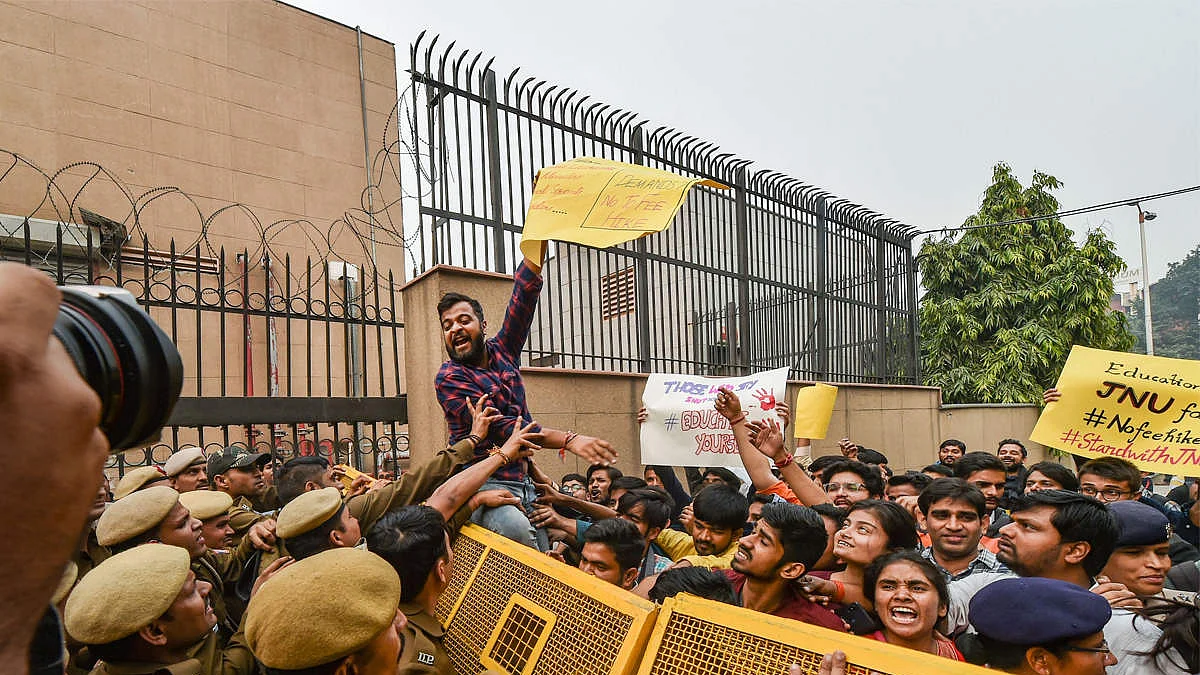Civic freedoms in India progressively shrinking in Modi regime: Report
In its latest report published on Wednesday, international watchdog CIVICUS Monitor has downgraded India’s civic space rating from ‘Obstructed’ to ‘Repressed’

The space for dissension with the majoritarian narrative, free expression and criticising the ruling dispensation is shrinking in India, a report by CIVICUS Monitor, a global research collaboration which rates and tracks respect for fundamental freedoms in 196 countries, said on Wednesday.
Based on its findings, the global freedom watchdog has downgraded India’s rating from ‘Obstructed’ to ‘Repressed’ in its new People Power Under Attack 2019 report.
A repressed rating for civic space means that democratic freedoms, such as the freedoms of expression, peaceful assembly and association, are significantly constrained in India. The rating changed after a thorough assessment of the state of civic freedoms in the country and comes after a year of regular monitoring.
The report has expressed “extreme concern” about the crackdown on human rights activists, attacks on journalists and civil society groups, and the lockdown on civic freedoms in Jammu and Kashmir.
“The Narendra Modi government seems to be turning its back on civic freedoms by going after its critics including activists and journalists,” said Josef Benedict, a researcher at CIVICUS.
“The deterioration of India’s civic space is alarming, particularly its assault on freedom of expression using an array of restrictive laws and its attempts to impede human rights groups,” Benedict added.
This has been a tense year for civil society in India. The government has used restrictive laws such as the National Security Act (NSA) and Unlawful Activities Prevention Act (UAPA) to “harass, detain and criminalise opponents”, the report said.
“This was seen in the case of academic and intellectual Anand Teltumbde, who was illegally arrested in February 2019 and has faced judicial harassment.
Students have also been targeted – some were charged with sedition for shouting ‘anti-India’ slogans, while a brutal crackdown on students at Allahabad University left activist Richa Singh in hospital,” it pointed out.
The CIVICUS Monitor is also worried that Prime Minister Narendra Modi’s government remains hostile to human rights NGOs. It is using the “draconian” Foreign Contributions Regulation Act (FCRA) to stop foreign funding and investigate organisations that are critical of the government, it added.
In July 2019, for example, the Central Bureau of Investigation (CBI) raided the offices of the Lawyers Collective, a prominent public interest NGO. This organisation played a key role in passing legislation about violence against women. The offices of Amnesty International and Greenpeace have also been raided.
“The CIVICUS Monitor is also extremely concerned about the clampdown on civic space in Kashmir. In August, the Indian government revoked the special status of Jammu and Kashmir, meaning that the Muslim-majority state lost the power to create its own constitution and laws.
“A blanket communications blockade was imposed. In the protests that followed, excessive use of force was used to disperse protesters and prominent leaders in the region were put under house arrest or placed on a no-fly list,” it noted.
“The people of Jammu and Kashmir have long suffered violations of their fundamental freedoms. Instead of ensuring justice and accountability for these abuses, the government has resorted to increasing its repression with arbitrary detentions and restrictions on access to information,” Benedict said.
About CIVICUS Monitor:
Over 20 organisations collaborate on the CIVICUS Monitor to provide an evidence base for action to improve civic space on all continents. The Monitor has posted more than 536 civic space updates in the last year, which are analysed in People Power Under Attack 2019.
Civic space in 196 countries is categorized as either closed, repressed, obstructed, narrowed or open, based on a methodology which combines several sources of data on the freedoms of association, peaceful assembly and expression.
Follow us on: Facebook, Twitter, Google News, Instagram
Join our official telegram channel (@nationalherald) and stay updated with the latest headlines
